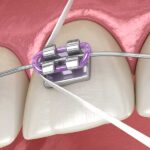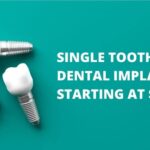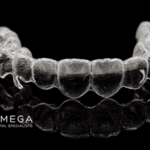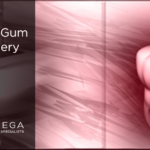What Is a Dead Tooth
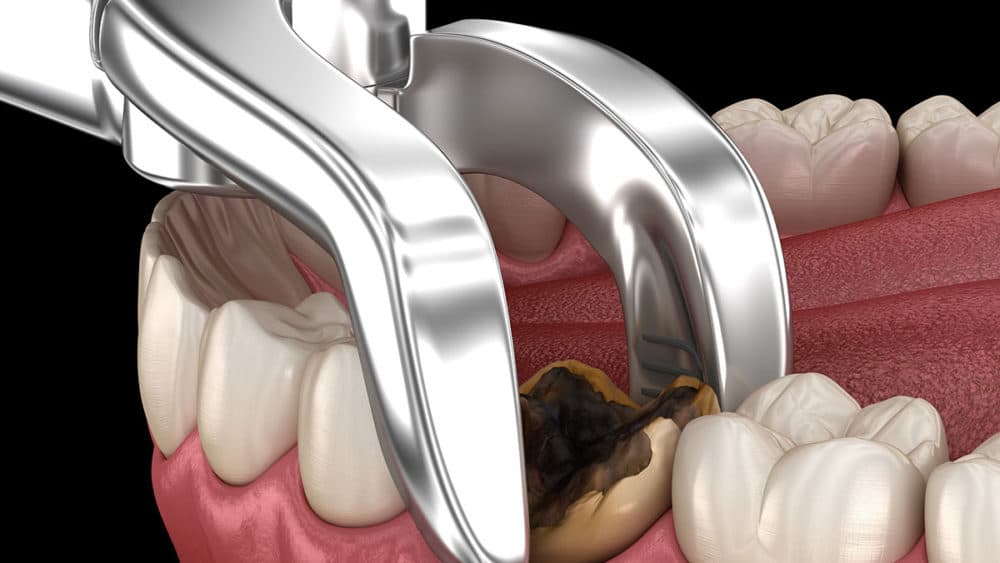
A tooth may die for various reasons. If you suspect you have a tooth that is not doing ok, we suggest visiting a dentist. They can accurately diagnose any health concerns. Nevertheless, it would not hurt to check for the following symptoms that could indicate you have this condition.
Table of Contents
Dental Health: Dead Molar or Dead Tooth
A tooth may die in various areas of the mouth. The first step is identifying which ones are affected. Before you can treat something, you’ve got to find it.
Anything from a failed root canal to poor oral hygiene can kill teeth.
Signs of a Dying Tooth
A tooth may die when they no longer receive blood from your veins. You can expect a variety of symptoms. These can range in severity. You may not experience all of them either. One of the most common is gum discoloration.
Dying Tooth Nerve Pain
Often, something is wrong with the never. This is most evident when you can feel it. Nerve pain can be the most distinguishable symptom if you suffer from this condition.
Bad Smell is Common From Dead Teeth
When a tooth may die, they begin to smell like rotten meat. It is not surprising this is what brings most people to the dentist. The smell can often become quite strong.
Signs of a Dying Tooth Summary
- Bad Smell
- Swelling
- Infections
- Feel Like You Need a Root Canal
What Leads to Dead Tooth
A poorly performed root canal can damage the interior of your mouth. When you suffer trauma to the mouth, one result could be the death of a tooth. It can also happen from something hitting you in the jaw.
What Happens When the Nerve of a Tooth Dies?
A cavity could eat away at the protective lining of your teeth. Then, the infections spread to the root. If it is not treated, it can kill it. Eventually, the entire structure begins to rot.
Why a Tooth Dies
Why a Tooth Dies is a tricky question. There are several underlying causes that can make this condition occur. However, they all share one thing in common. Your teeth must stop receiving a blood supply. Once this happens, it is only a matter of time.
How Do You Know If You Have a Dead Tooth
Your dentist may discover a dead tooth when you go in for a routine root canal. When they take the x-ray images, they will see them clearly on the screen. It is always a possible outcome from any mouth trauma.
Prevention
You want to do everything in your power to prevent the teeth in your mouth from passing away. There are things under your control that can help.
We recommend always seeing your dentist regularly. Brush your teeth every night also. Poor hygiene is the biggest contributor to these types of issues.
Preventing Infections
Always floss and use mouthwash. These activities stop the bacteria from causing infections. Infections damage your teeth. Stop them before they occur to lessen the likelihood of any serious effects.
Brushing Is Important
You should be using your toothbrush everyday in the morning and at night. Brushing removes plaque from your teeth. These bacteria can lead to infections of your gums if you do not get rid of them.
Talk to Your Dentist
Speaking with a professional is always going to be a good choice. You do not want to mess around when it comes to anything regarding your health. You only come with one set of teeth when you are born. You need to take good care of them.
Dead or Dying Tooth Prevention
- Treat Tooth Infection
- Brush Teeth to Stop Cavities
- Ask Your Dentist If You Are Concerned About a Dead Tooth
- Root Canal
Treatment Options
Prevention is of the utmost concern. Not only is it easier, but it is also more affordable. Nevertheless, bad things happen to the best people. Luckily, this is a treatable condition. You’ll have several options. The right option will depend on the circumstances.
Dead Teeth Treatment Topics:
- Root Canal Cost
- Tooth Extraction Cost
- Cost of Dental Implants
- Dead Tooth Replacement Options
- Dead Tooth Prevention
- Dead Tooth Causes
- Root Canal Procedure
When your teeth die, do not leave a dead one in your mouth for long.
Root Canal
The most common option to treat dead teeth is to remove them via a root canal. As soon as you notice the dying tooth signs, talk to your dentist.
Before they die, he will schedule an appointment for you. If you get there soon enough, he may save it.
As long as he can remove any infection before the teeth die, you can keep it. Often, you will need a crown for the two afterward. If you experience any discoloration, you could consider bleaching to resolve the problem.
Tooth Extraction
When you have severe dead teeth, the only option may be to remove them. Suppose you go to the doctor and they give you an evaluation. The dentist tells you they will be unable to salvage your teeth.
Following this unfortunate announcement, extracting it might be your best bet.
This will involve the complete removal of the teeth. Sometimes, you can have it replaced. There are several important questions for you to consider before moving forward with this approach.
Remember to Ask Your Dentist:
- The Timeline of the Procedure
- Cost of Tooth Extractions
- What to Expect Before and After
- Root Canal Treatment Details
- Pain Management Treatment Questions
- Tooth Nerve Damage Treatment Plan
- Tooth Nerver Treatment Information
Dental Implants Post Tooth Extraction
Do you suspect that you have a dead tooth? When your teeth die, it’s important for you to consider all of your options. Once it has been taken out of your mouth, you should try to get it replaced.
There are several different materials available for you to replace the lost one with. These will also serve to help protect your mouth in the future.
Ask your Dentist About The Following Topics Regarding Your Dead Tooth
- Cost of Dental Implants
- Root Canal Treatment Details
- Pain Management Treatment Questions
- Tooth Nerve Damage Treatment Plan
- Tooth Nerver Treatment Information
Managing Pain After Your Procdeure
Once you finish at the dentist’s office, you can expect to be in pain for a few days. Prior to your procedure, you have probably gotten used to this feeling.
Because this condition can be incredibly painful, it’s essential for you to learn how to manage the pain effectively.
Managing pain isn’t that difficult as long as you know the proper steps. The following advice should help you get through the first few days until you start to recover.
Do Not Drink Heated Beverages
Your teeth and gums will be particularly sensitive after you get home. During the first few hours, we recommend avoiding anything that is above room temperature.
Some patients report that heated beverages can cause particular pain. We suspect that drinking warmed fluids can lead to an increase in inflammation. Thus, the pain response would make sense.
Take Over the Counter Pain Medications
There are several types of over-the-counter anti-inflammatory medications that can be effective.
These help your body to reduce the flow of pain signals from the source of the injury to your brain. By dampening the signals, you experience a reduction in your perception of the painful stimuli.
Stick to Soft Foods for a While
You should avoid trying to eat anything that you must bite down on with the pressure. Applying pressure to your mouth after your procedure is not a good idea.
It could lead to rupturing within the mouth. Not to mention, you will experience quite a bit of pain. Stick to soft foods for the first week or so. After a while, you will be enjoying a full diet again.
Omega Dental Specialists Houston Texas
Are you worried about your mouth? If so, we understand the concern. When something’s going wrong with the teeth inside your head, you don’t want to let that go.
That’s why we’ve spent our lives developing a practice designed to help provide you with top-quality care.
Don’t let something go unattended. We would love to help. Please let us know if there’s anything that we can help you with. Give us a call, and we will answer any questions that you have.
Meanwhile, consider the following advice before you depart.
Evaluating Your Habits
Are you keeping track of your habits regarding the hygiene of your teeth? As we mentioned earlier, preventing these types of conditions is much easier than treating them.
If you would rather not have to go to the dentist for surgery, maintaining good hygiene habits is essential.
You should be using floss on a daily basis. We suggest also incorporating mouthwash at the start of the day and after each meal. Of course, you can never forget about brushing your teeth either.
Learning From Your Mistakes:
If it is already too late, you should at least try to learn from your prior mistakes. After you get your dead teeth resolved, do your best to prevent future teeth from dying as well. As we have already stated, maintaining good hygiene habits is vital.
Did one of your teeth die?
When you have dead teeth, trust us to do the dead tooth replacement.
Dying Tooth Signs
- Dying Tooth Nerve Pain
- Tooth Infection
- Cavities
- Poor Dental Health
- Dead Molar
- Dead Premolar
- Dead Tooth
- Failed Root Canal
